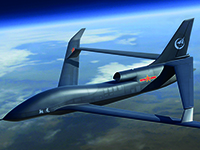We are, once again, witnessing a technological revolution in warfare: the progressing autonomy in weapons systems. Autonomy refers to capabilities of weapons to operate without human guidance, pertaining to less controversial functions such as navigation and reconnaissance – but also to the alarming prospect of robots making the killing decision. The latter in particular has given rise to fundamental ethical and legal concerns: To what extent is it morally acceptable to use robots in military operations? Are autonomous weapons capable of compliance with International Humanitarian Law? Who can be held accountable for their actions and how?
Responding to these concerns, the new PRIF SPOTLIGHT "How to Regulate Autonomous Weapons. Steps to Codify Meaningful Humanitarian Control as a Principle of International Humanitarian Law" by Elvira Rosert echoes the calls for a ban on killer robots, and proposes to adopt a new principle, which would turn meaningful human control of lethal weapons into an obligation under International Humanitarian Law.
Download (pdf, 565kb): Rosert, Elvira (2017): How to Regulate Autonomous Weapons. Steps to Codify Meaningful Humanitarian Control as a Principle of International Humanitarian Law. PRIF Spotlight 6/2017, Frankfurt/M.
Prof. Dr. Elvira Rosert is Junior Professor in Political Science, particularly International Relations, at the Universität Hamburg and at the Institute for Peace Research and Security Policy (IFSH). Before joining IFSH, she had been a long-term Research Associate at PRIF, first in the Research Department “Arms Control and Disarmament”, and later in the Research Groups “Conflict and Normative Change” as well as “Public International Law”.
